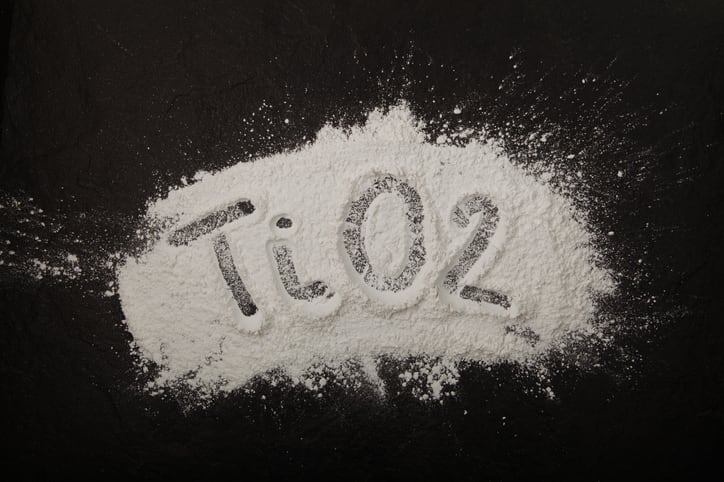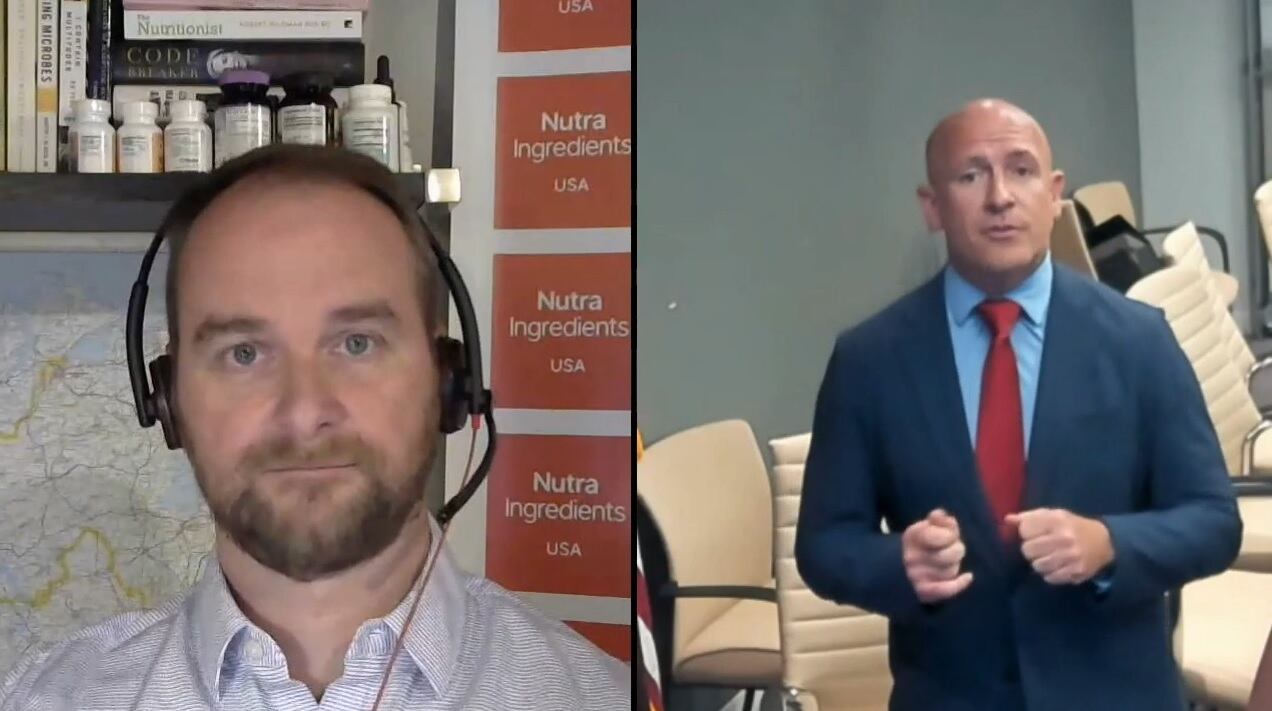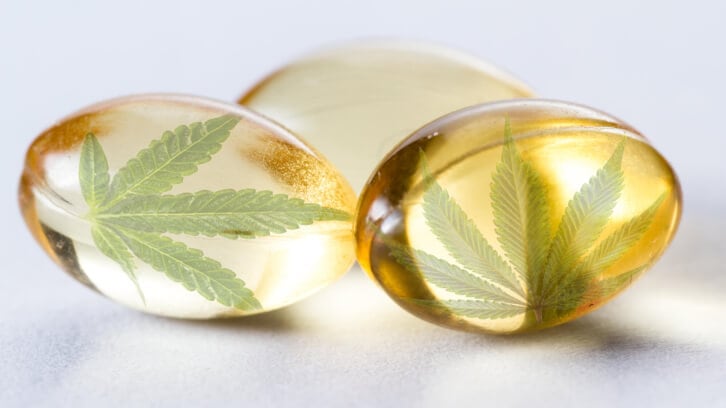Several stakeholders are urging the U.S. Food and Drug Administration (FDA) to deny a Citizen Petition from the Environmental Defense Fund (EDF) which asks FDA to revoke the use of the colorant titanium dioxide (TiO2) in foods, including dietary supplements.
Titanium Dioxide is the oxide of the metal titanium and occurs naturally in several kinds of rocks and mineral sands. The colorant is one of the whitest materials on earth. When ground into a fine powder, TiO2 transforms into a white pigment that provides whiteness and opacity to products such as dietary supplements. It is commonly sourced from the minerals anatase, brookite, ilmenite, leucoxene, perovskite, rutile and sphene.
TiO2 was approved for use in food by FDA in 1966, as long as it doesn't exceed 1% of the food weight as an ingredient. It was last reviewed for safety in food in 1973, when it was deemed safe. The Food, Drug and Cosmetics Act does not require FDA to regularly reassess the risks of chemicals it has approved. At the time of approval, titanium dioxide was not thought to accumulate in the body. Groups such as the Center for Science in the Public Interest argue more recent research suggests TiO2 nanoparticles may build up in the body over time and alter DNA. However, Consumer Health Care Products Association (CHPA) said, “Based on extensive scientific research and regulatory evaluations, TiO2 is deemed safe for use as a food additive when consumed within established regulatory limits.”
Under the EFSA influence?
The Citizen Petition cites the European Food Safety Authority’s reevaluation of titanium dioxide, which resulted in a declaration that the additive could no longer be considered safe for human consumption.
“The battle over the use of titanium dioxide as an additive is fundamentally about whether the U.S. should adopt the standards from the European Food Safety Authority or take a different approach. The Environmental Defense Fund’s petition asks FDA to repeal the FDA regulation permitting titanium dioxide, primarily based on the EFSA’s opinion that titanium dioxide is not safe due to overall genotoxicity concerns. However, the Consumer Health Care Products Association’s recent petition against the repeal opposes adopting the EFSA’s standards,” explained Pooja Nair, partner at Ervin Cohen & Jessup LLP.
“Interestingly, the current version of the California Food Safety Act, which is on the State Senate’s calendar for a third reading, just removed titanium dioxide from its banned food ingredient list,” added the food and beverage litigator.
Findings questionable
Some question the EFSA findings because some of the studies exposed rats to high concentrations of Ti02, which doesn’t reflect the amounts that humans would realistically consume.
In its submission of comments, CHPA said, “There is a substantial body of scientific evidence that has been extensively reviewed by a diverse set of regulatory authorities that supports the safe use of TiO2 as a food additive.” CHPA also outlined several key points:
- Established safety and regulatory compliance already exists for TiO2
- TiO2 serves a critical functional role in dietary supplements
- There is a lack of viable alternatives to TiO2
- There are economic implications if TiO2 were no longer permitted for use
- Consumers accept and are aware of TiO2 in products
Speaking to NutraIngredients-USA, Duffy MacKay, SVP, Dietary Supplements, CHPA, said, “Ensuring consumers have access to safe and quality dietary supplements remains a top priority for industry. CHPA and our members believe that maintaining this regulation is crucial to upholding quality standards for many products on the market. Titanium dioxide (TiO2) plays a crucial role in achieving these goals by enhancing the stability and functionality of various dietary supplement finished products, protecting them from heat and light for example. A hasty ban on TiO2, an ingredient consistently deemed safe for use in supplements by extensive scientific research and regulatory evaluations, would not enhance product safety. Instead, it would have far-reaching consequences, including increased costs for consumers and economic impacts.
Based on the totality of scientific evidence finding this ingredient to pose no harm to human health when used in supplement products, in addition to the potential consequences that would be placed onto consumers if TiO2 were to be unjustifiably banned, CHPA urges FDA to deny the petition.”
Last year FDA confirmed safety of titanium dioxide as food additive
In December 2022, an FDA spokesman told FoodNavigator-USA that the agency considers TiO2 to be safe noting that the available safety studies do not demonstrate safety concerns connected to the use of TiO2 as a color additive.
“The FDA reviewed the findings of EFSA’s 2021 Opinion on titanium dioxide. The FDA notes that EFSA’s 2021 Opinion continued to confirm no general and organ toxicity, as well as no effects on reproductive and developmental toxicity.
In its 2021 Opinion, EFSA noted that it could not rule out genotoxicity and included genotoxicity tests on titanium dioxide nanomaterials. Some of the genotoxicity tests included test materials not representative of the color additive, and some tests included administration routes not relevant to human dietary exposure. The available safety studies do not demonstrate safety concerns connected to the use of titanium dioxide as a color additive.
The FDA continues to allow for the safe use of titanium dioxide as a color additive in foods generally according to the specifications and conditions, including that the quantity of titanium dioxide does not exceed 1% by weight of the food, found in FDA regulations at 21 CFR 73.575.
The above position falls in line with other key global regulators including Health Canada, Food Standards Australia New Zealand (FSANZ), and the United Kingdom’s Food Standards Agency (FSA).
A cautionary tale
“Titanium dioxide is today, but we might see creatine and other sports nutrition products continue to be a target for state legislators like in California, New York, New Jersey and other places. And it's why it's important to continue to be an advocate for not just the industry, but making sure that you're meeting with your state reps and your municipal reps to ensure that they understand the impact that their businesses have on the community,” said Kyle Turk, Director of government affairs for the Natural Products Association (NPA). “The FDA does a really good job, at times, of regulating the industry, and if there were safety issues with any of these products, they'd be the first ones to remove these products from the market.”




